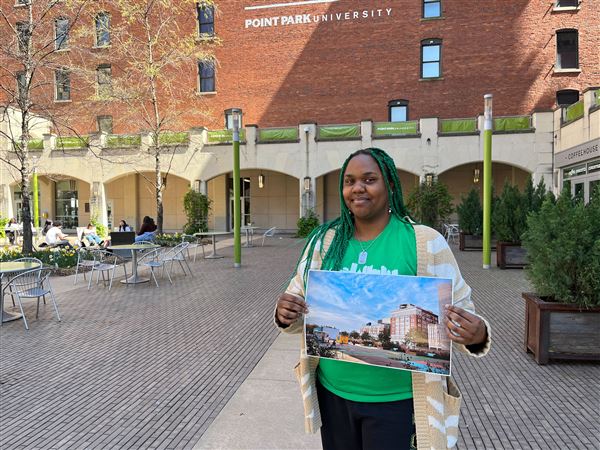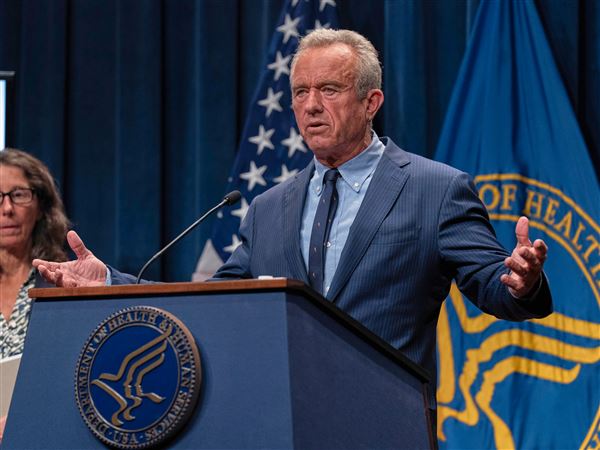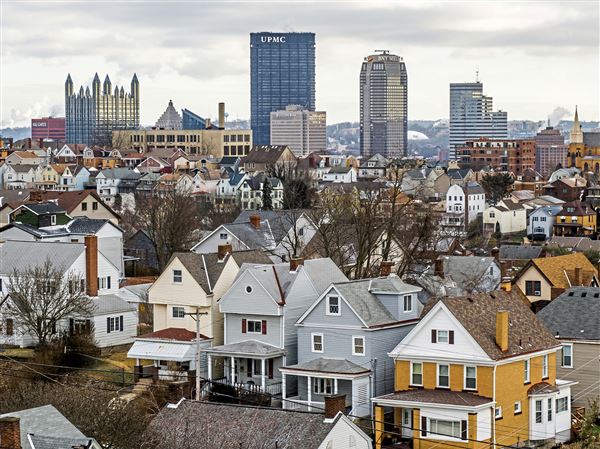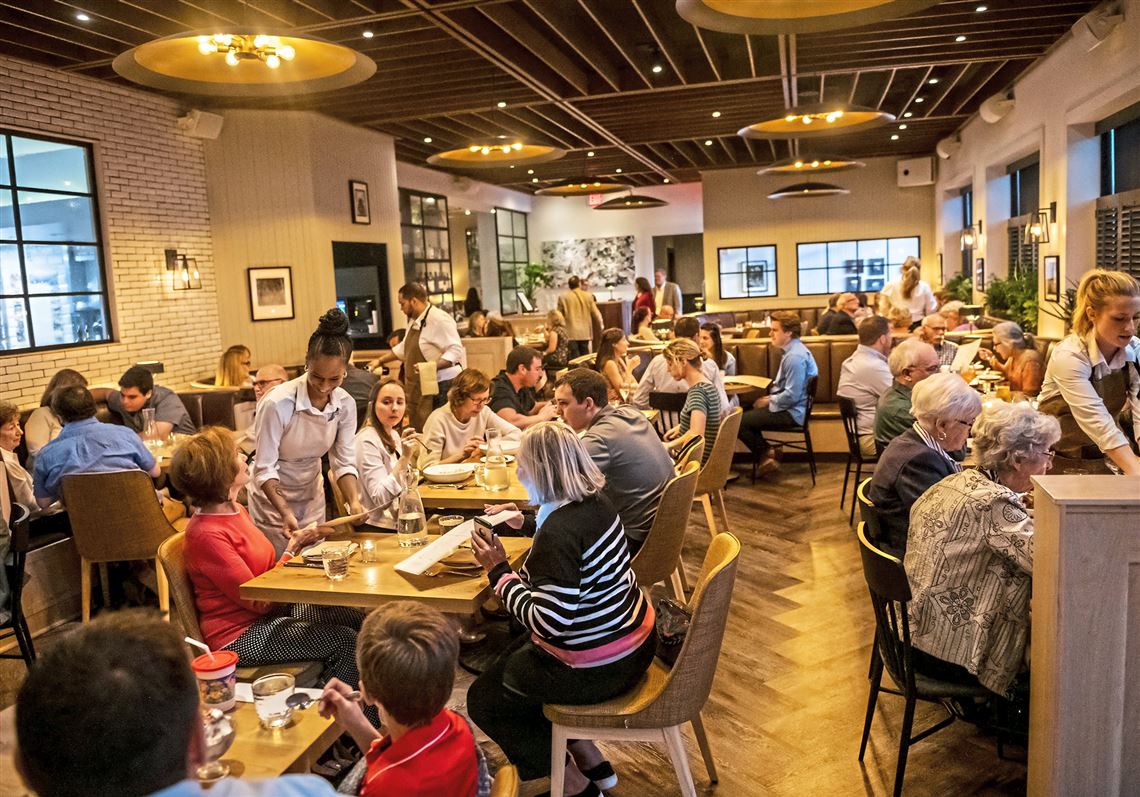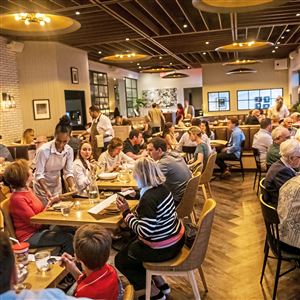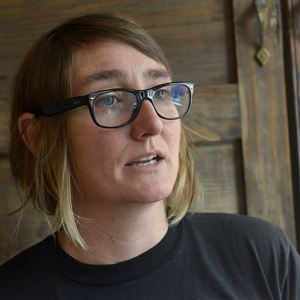Some diners are under the impression that restaurants are making money off no-shows.
As people flock to hot restaurants, reservations can be tough to come by — at least for openings, special events and holidays here in Pittsburgh. In the meantime, as more restaurants debut and the scene gets more competitive, this, combined with the rising costs of labor, rent and operations, pushes restaurants to ratchet up ways to ensure they’re not going to lose money. Charging for missed reservations is one way to potentially offset losses — and also to discourage no-shows.
In Pittsburgh, the practice is just emerging — for now. Consider the case of Alta Via, the newest in the Big Burrito restaurant group that opened in O’Hara in March.
The Italianate Alta Via is stylish but simple, with a veg-heavy selection of appetizers, half- and full- pasta orders, and “gelato” soft-serve for dessert. While all this sounds promising for a new spot in the suburbs, one thing caught the ire of folks trying to get a reservation.
Turns out the restaurant requests a credit card when making a reservation for any size party; if the reservation isn’t canceled within 24 hours of the date, the party is charged $25 per guest.
“Have you ever heard of this? Really pisses me off,” a reader wrote to me. And over on Facebook, a private Fox Chapel thread on the subject includes more than 100 comments about the policy.
It’s not just credit card-secured reservations that reflect the changing landscape. If a table doesn’t show, a restaurant’s Open Table app reservation system may have detailed notes about it.
Wondering why your family got that seat by the bathroom? A missed reservation or two could have something to do with it.
An answer to the pushback
To be fair, Bill Fuller, president of Big Burrito, says Alta Via has only charged one table that didn’t show up. But when the customer noted that they’d called in to cancel and spoke to an employee, Alta Via refunded the customer’s credit card.
“It is not my intention to make money off people who do not show up,” he says. “It is not part of our business plan.”
As to why the restaurant has taken this approach, he says it starts with the fact that Alta Via has just 90 seats, which is smaller than some of its other locations, such as Soba in Shadyside or Kaya in the Strip. Let’s say that a table of four had a reservation for 7 p.m. Alta Via will hold the reservation until 7:20 or so.
“Maybe it gets later” and it’s still empty, Mr. Fuller says. “And especially if it’s a weekday, it gets hard to fill those seats,” which means restaurants and servers lose money.
The credit-card reservation hold for every table is a step beyond what’s practiced at other Big Burrito restaurants, such as Eleven in the Strip or Casbah in Shadyside, where tables of six or more have long secured reservations with a credit card. Same with special event days like Mother’s Day or New Year’s.
“When you require a credit card,” Mr. Fuller says, “people are way more responsible.” He cited a no-show table of 10 at one of the group’s specialty restaurants recently. “This doesn’t just affect the restaurant: it’s at least half a day’s wages for the server.”
Over in Lawrenceville, Justin Severino is co-owner of Morcilla and the recently closed Cure — both smaller than Alta Via. No-show reservations “really affect us: it’s a family-run business. We buy good ingredients. Our margins are small,” he says.
Cure and Morcilla both have required a credit card for reservations for more than four people. With a check average at Cure at around $70 per person and slightly less at Morcilla, it’s a hit when tables don’t cancel reservations. And it’s a big hit when it happens multiple times a week.
“We can fill those seats if you can’t make it,” he says. “Just give us a call.”
Overt versus covert
Look at it this way: The $25 per-diner charge is at least a transparent way to hold diners accountable for canceling reservations. Something like OpenTable can affect a diners reputation in ways they’re not necessarily aware of.
OpenTable and other online reservations platforms aren’t just a tool for customers; they’re also for restaurants — especially since they’re paying the fees to participate in the service.
That means it has utility for restaurants beyond putting butts in seats. So if you had a birthday, if you’re a regular and have a go-to order, if you pitch a fit in the middle of the restaurant during dinner, if you’ve gotten obnoxiously drunk, and yes, if you’re a no-show for a reservation, the restaurant can list diners’ behavior and habits through its OpenTable account (only seen by the individual restaurant). And while it’s not as aggressive as rideshare apps like Uber that assigns users a numerical rating for their reliability and behavior, it can affect diners’ restaurant experiences. Wondering why you got a lousy table? Consider that your behavior at the restaurant has been logged in OpenTable.
“If Joe Smith canceled a reservation or has a favorite drink, yes: those notes are in there,” Mr. Fuller says about Big Burrito’s OpenTable practices. How much you’re tipping, he says, is not.
OpenTable has been the giant in online reservations for more than 20 years. The platform handles more than 40,000 restaurants in 20 countries, and seats more than 26 million diners a month via online reservations.
OpenTable tracking is one of a handful of ways restaurants have been dealing with the effect of no-show reservations around the country. Other ways they’re addressed include overbooking a restaurant — we’ve all had to wait a half-hour beyond our reservations time — and prepaid reservations. Some restaurants would argue that they’ve gone the way of no reservations so they don’t have to deal with no-shows, Eater reported back in 2013.
Fast forward to the present and Mr. Severino says he has worked for restaurants that log copious notes in OpenTable. And while he, too, uses the platform, he doesn’t chronicle guest details in the system. “That’s something we consciously don’t do,” he says. The only time his staff enters notes is when a table is abusive toward other guests or toward an employee.
Back to the $25 per person charge that’s more in theory than a regular occurrence at Alta Via. Mr. Fuller notes that dining isn’t that different from booking a flight and or a massage for which the customer pays ahead — a practice that gets little pushback.
The difference is that we’re talking about the restaurant industry, where the choices are vast for consumers. As for restaurants, “this is still the hospitality business,” he says, “and we still want to be accommodating.”
Melissa McCart: mmccart@post-gazette.com
First Published: May 2, 2019, 12:19 p.m.
Updated: May 2, 2019, 12:35 p.m.

